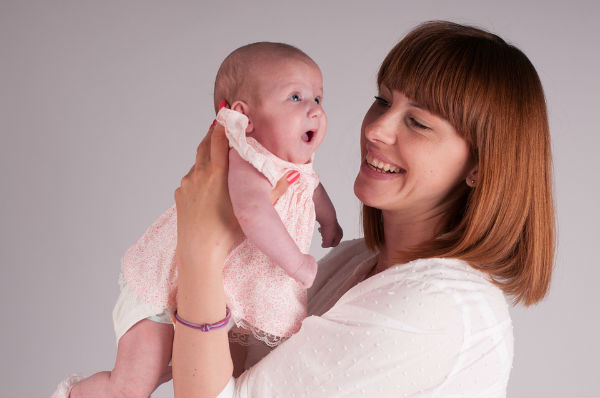Navigating Postpartum Life

You don’t have to be a woman or ever be pregnant to know that pregnancy can take a toll on your body. Aside from the anticipated effects stemming from all the physiological changes that took place in order for the pregnant woman’s body to support and nourish the growing fetus, many other changes also take place during the course of a forty-week pregnancy, including ones related to a pregnant woman’s endocrine (hormonal), digestion, cardiac systems, and many, many more. In fact, during pregnancy, a woman’s body will literally grow an organ – a placenta – that it needs only during pregnancy, and soon after giving birth, the pregnant woman’s body will expel the organ because it’s no longer needed. Thus, to say that “pregnancy is hard” is a massive understatement. Literally, every visible and invisible ounce of a woman’s body changes.
Knowing this, it’s astounding that so many women feel like they must rush during their postpartum phase to transition their body back to resemble their pre-pregnancy self. It’s as though some women suffer from short-term memory loss because it seems like they have completely forgotten the massive amount of change their bodies have just endured for the better part of a year!
There’s little doubt that media and popular culture’s images that inundate us all on a daily basis influence our thought process on the matter – we see celebrities “get back to it” so quickly, and we assume that we can (or ought to or should) do the same – but having the same set of expectations, or putting pressure on yourself, can be incredibly unrealistic and lead to some major disappointments. Plus, I’d say that harboring these sorts of hopes simply isn’t healthy – and especially during the postpartum period when you’re transitioning to being a parent, perhaps for the first time, and thusly learning how to care for your child while also caring for yourself.
The postpartum period is a delicate one. It is stressful, but it is also beautiful, as silly as that may sound At no other time will your child need you as much as she/he needs you now, and the bonds that you two can develop during this time are simply indescribable. It’s okay – and normal, even – to want to get your body back to how it was before you became pregnant and gave birth, but don’t forget to see the bigger picture right now. Your life and body have completely changed. You are learning what your new normal will be and how to navigate your new day-to-day.
While the postpartum phase can be extremely challenging for parents – whether you are a parent to one child or to many more – there are some ways that you can make it a little easier to navigate. Here are some of my ideas:
Do not be afraid to ask for help! This tip is probably the most important and among the least utilized. As hard-working and ambitious people, many of us feel like we need to be the best at everything we do, and oftentimes, that means that we never, ever, ever ask for help. When you become a parent, check your ego at the door, and do not be afraid to ask for help. Obviously, confer with your child’s pediatrician or with your own physician for any medical concerns you may have, but for everything else – such as cleaning your home, running errands, making meals, or any other mundane task – enlist the help of your family and friends or even hire help, if you can afford it. Chances are high that your loved ones will want to do anything they can to support you as you transition into being a parent – plus, it’ll give them an excuse to come over and see the baby! – but many times, people don’t know how to help unless they’re asked.
Sleep when the baby does. Parents will give you this advice time and again, but it’s sometimes not until you’re in the haze of the initial postpartum period that you realize how truly important it is. It’s imperative that we all sleep on a daily basis, though the amount of sleep each person needs can vary tremendously. Having a newborn or an infant can significantly throw-off your sleep schedule, but your own sleep isn’t something that you should sacrifice so you can do other things, like cleaning your home, running errands, or any of the otheraforementioned mundane tasks. (This is where asking others for help can come in handy!). Even if your child isn’t sleeping for lengthy periods of time yet – at daytime or at nighttime – consider lying down when your child is and just closing your eyes. If you don’t fall asleep, or deeply asleep, that’s ok; you’ll likely find that just the mere act of disconnecting from the world, lying down, and closing your eyes can give you a sense of calm and if you’re lucky, a little bit of additional energy.
Don’t be ashamed of “the baby blues.” Postpartum depression is a very real medical condition and one that you should not be ashamed of. If you feel like you have “the blues” – even if you think it’s no big deal – definitely talk to your practitioner and seek help. There’s no need for you to silently suffer, or to suffer alone, and together with your practitioner’s medical counsel, you’ll be able to treat it sooner rather than later. Doing so will obviously make you feel better, but it’ll also help you a better parent, too.
Physical activity may make you feel better. It’s normal to want to jump back into a fitness routine immediately after pregnancy, and as I mentioned before, popular culture and the media oftentimes make postpartum women feel like they should look as they did before they had their children practically immediately after childbirth. When you’re in the postpartum period and are figuring out how to navigate life with a newborn or an infant, consider removing all expectations for how your exercise “should” look each day. Instead, aim to be active – as much as you can be, healthily – with your child. This can mean taking walks with your child each day, either by pushing him/her in the stroller or by wearing him/her in a baby carrier strapped to your chest; doing a postnatal yoga routine in the comfort of your own home, while your child plays on the floor next to you; or simply aiming to do a lot of “little things” throughout the day to be more active (such as taking the stairs instead of the elevator, parking further away in a parking lot, or walking to errands instead of driving). Don’t pressure yourself into being a super-parent who works-out for hours each day; instead, be satisfied with doing what you can, when you can, and if you’re able (and want) to, consider incorporating your child into your fitness plan as well. As long as you have the medical clearance to resume physical activity from your practitioner, you may find that being more active each day helps you feel better post-delivery and that it helps you sleep better, make healthier nutritional choices, and puts you in a good mood for the rest of the day.
Eat healthily, but don’t diet. It behooves all of us to make healthy food choices at all stages of our lives, but this is especially true during the pregnancy and postpartum periods. Particularly if you are breastfeeding, what you eat on a daily basis can directly affect how you (and your nursing child) feel, so it’s important to try to eat healthily as often as you can and to consume enough calories each day that can both nourish you and sustain the growth and development of your nursing newborn. If you have any questions about how to eat while you’re nursing, talk to your practitioner. Just like with physical activity, you’ll likely find that if you eat healthily, more often than not, you’ll simply feel better, too. Now isn’t the time to unduly restrict your calories in an effort to “lose the baby weight,” but being mindful of the foods and drinks you consume will be key to ensuring that you’re providing enough high-quality sustenance for both you and your growing child.
Maintain an open and honest relationship with your practitioners. Last but not least, given the potentially-tumultuous nature of the postpartum period, it’s critical that you both establish and maintain an open, honest relationship with your practitioner – presumably, the one whom you saw throughout the duration of your pregnancy – and that of your child. No question is silly; no concerns is unwarranted; and if your practitioner makes you feel otherwise for asking, consider seeing someone else. It’s so important that you feel “heard” and that you feel like you can ask any question you want about your health and your child’s growth and development, so consider your practitioner as another part of the relationship you have with your child; you are in this together!
Having a baby is obviously a life-altering experience in more ways than one, yet it’s important to know that the postpartum period, when you’re trying to figure out how to “do life” with a new little person in tow, is equally life-altering. This new phase of life can be incredibly challenging but also very rewarding and gratifying to navigate, and it’s my sincerest hope that my tips above will help make the transition a little easier for you. It’s important to know that you’re never alone – there is always someone you can call and ask for help – and that for as hard as this period is sometimes, there’s really nothing else quite like it in life.

Bio: Dan Chabert
Writing from Copenhagen, Denmark, Dan is an entrepreneur, husband and ultramarathon distance runner. He spends most of his time on runnerclick.com and he has been featured on runnerblogs all over the world.